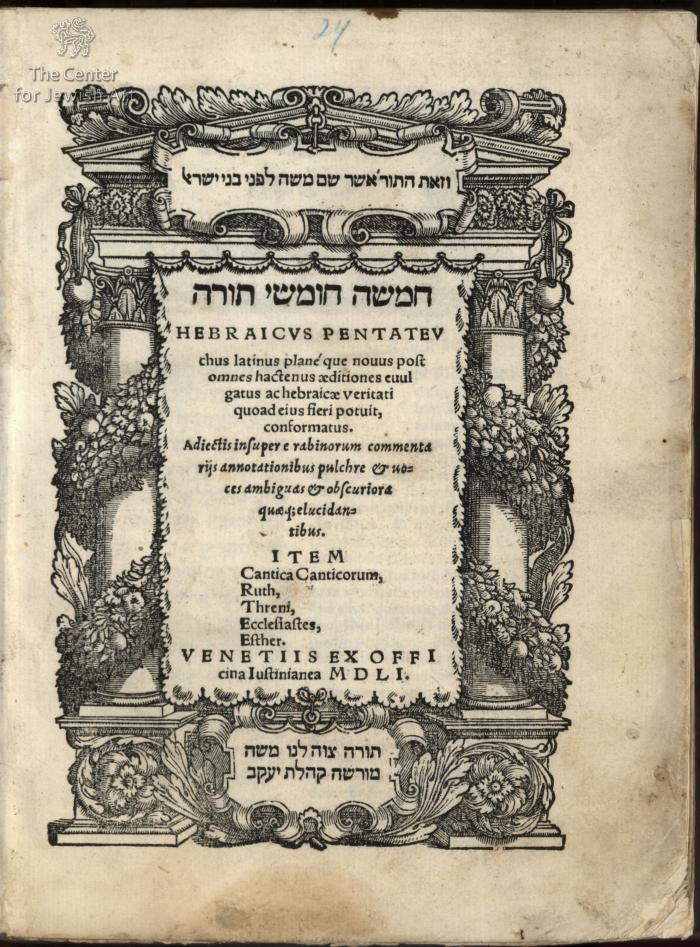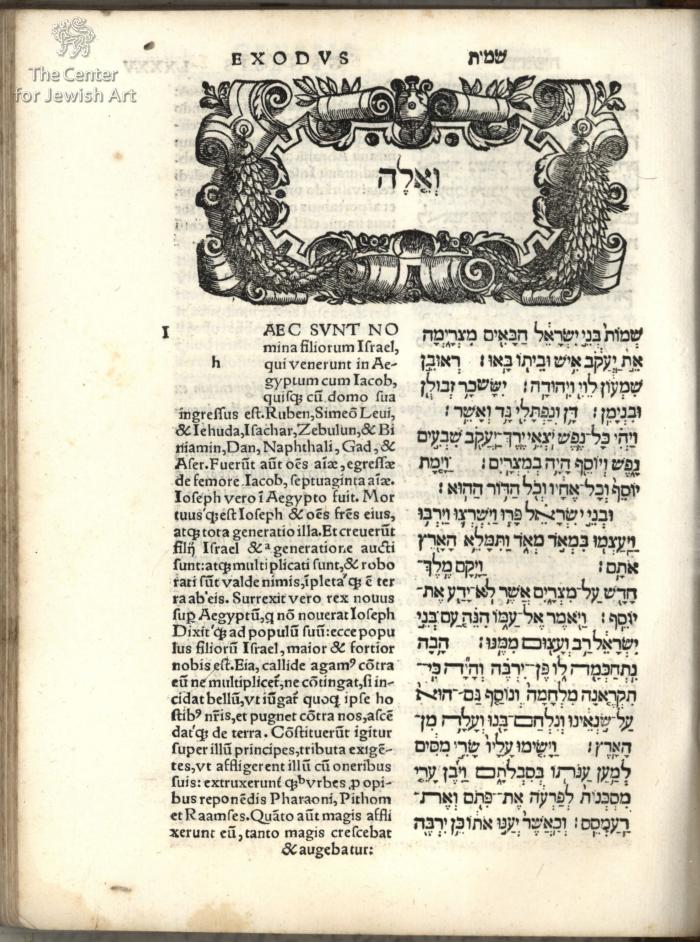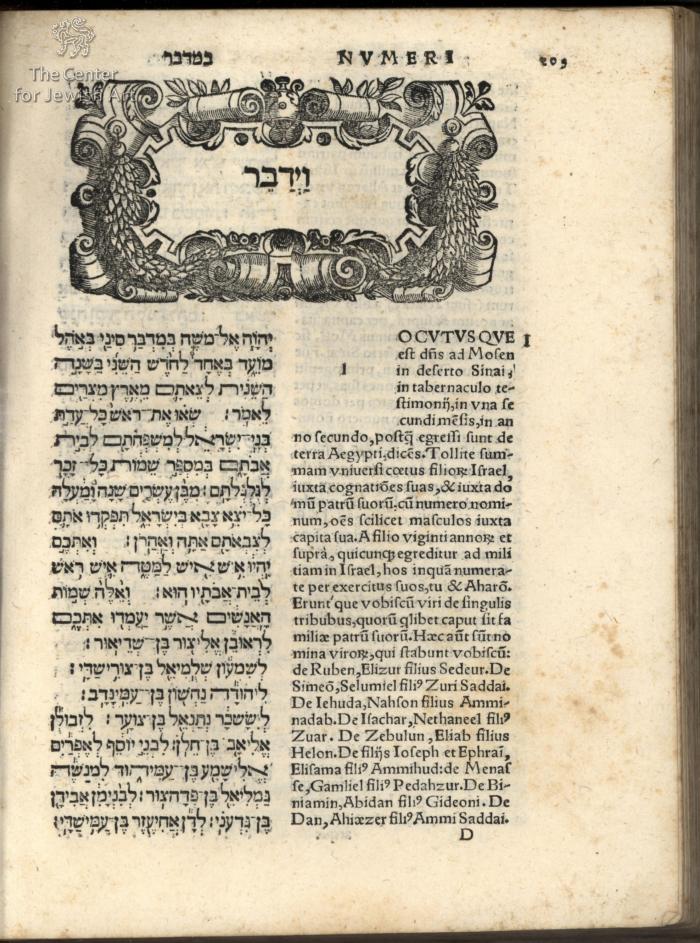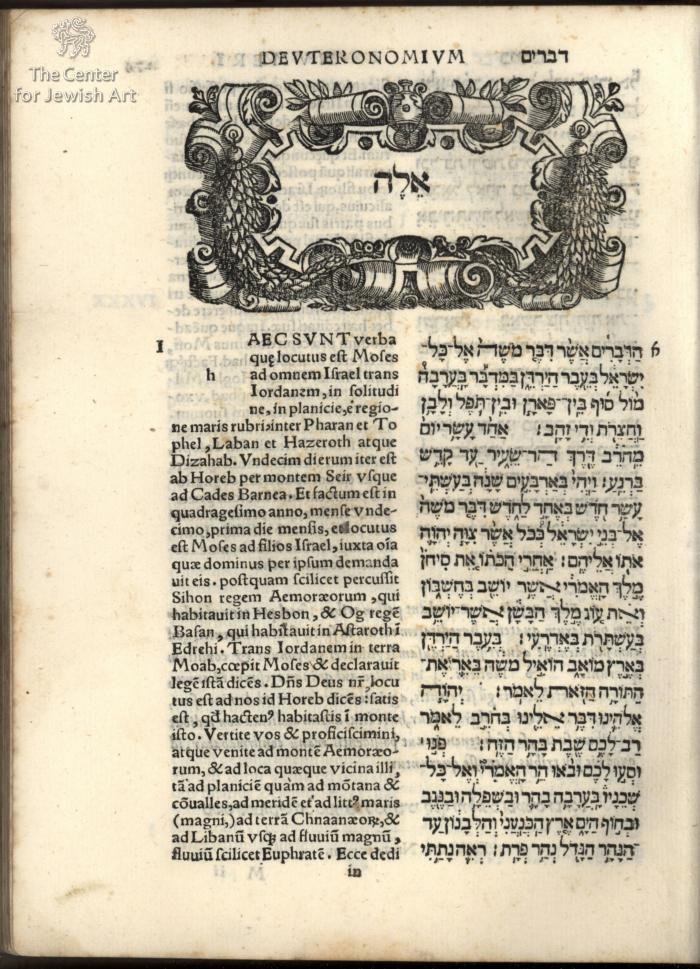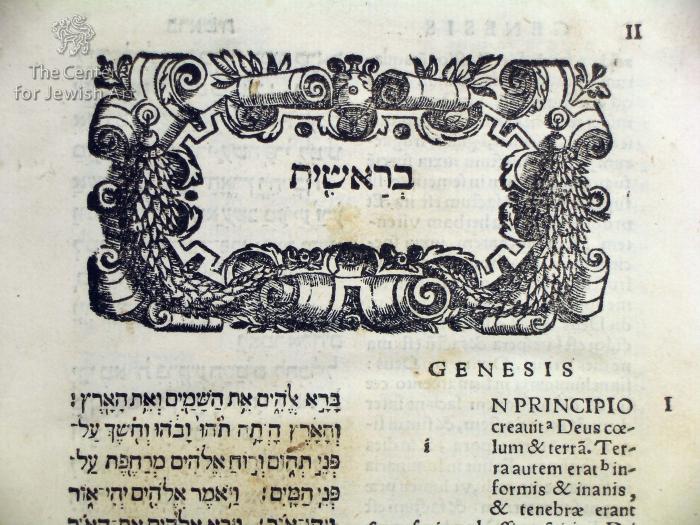Obj. ID: 38675 Chamishah Chumshei Torah Hebraicus Pentateuchus, Venice, 1551
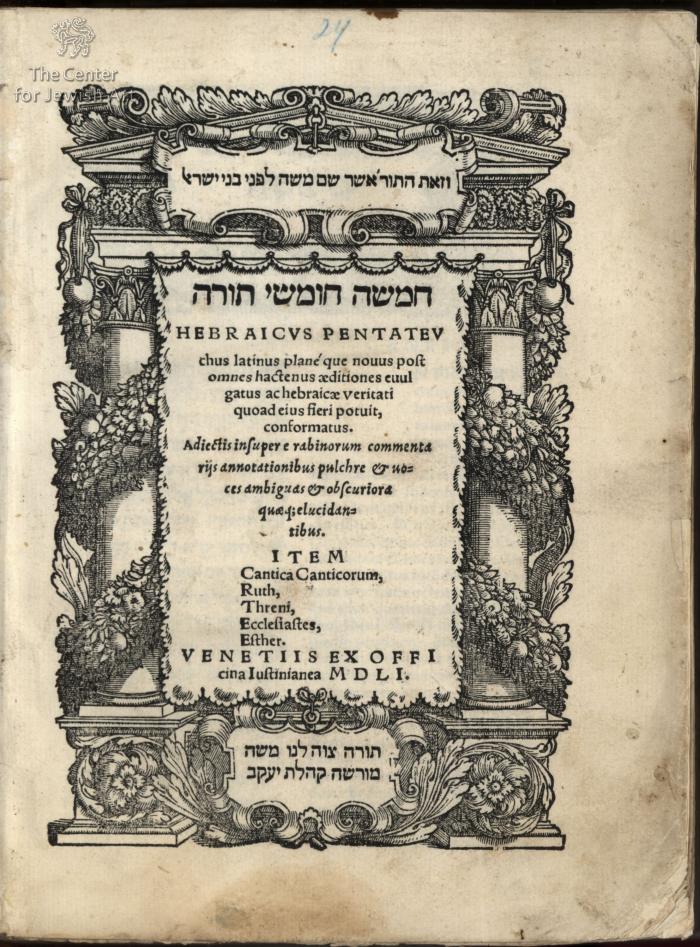
sub-set tree:
This text was prepared by William Gross:
One of the Hebrew presses in Italy was that of a wealthy and powerful Christian gentleman in Venice, Marco Antonio Giustiniani. He began printing important books in 1545, but ultimately published Hebrew books for only 7 years. His real importance for the history of Hebrew printing was his extremely intense rivalry with the Hebrew printing house of Alvise Bragadini. This personal competition of the two printers ultimately led to the papal decree of 1553 instructing the burning of all existing editions of the Talmud. Thousands of Hebrew books were burned in the public squares of Italian cities, bringing a disaster of severe proportions on the Jews of Italy. Hebrew printing was not resumed in Venice until 1563. This volume has a title page decorated with an illustration of the Dome of the Rock, marked in Hebrew "The Temple". This illustration served as the printers’ mark of the Giustiniani printing house. The use of the image of the Moslem monument , erected on the Temple Mount, to symbolize the holiest of Jewish sites was a regular feature of illustration in Hebrew printing from this time onwards for more than 300 years. The book, by Jacob ben Yehudah Landau of 15th century Germany and Italy, discusses aspects of medieval religious laws and customs.
Latin title page with ornate architectural frame.


